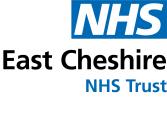Following the birth of your baby our team will help you to learn how to breastfeed, how to hand express your milk and how to tell if your baby is getting enough milk. Our aim is to provide you with information and support you need in order to breastfeed for as long as you wish. If you choose to bottle feed we will show you how to do this as safely as possible.
The World Health Organisation and UNICEF recommend babies are exclusively breastfeed for the first six months of their lives. From six months old babies should be given adequate complimentary foods whilst continuing breastfeeding for up to two years of age and beyond.
Breastfeeding; getting off to a good start
This video explains CHIN (Close, Head free, In line, Nose to nipple), an acronym that can be used when breastfeeding your baby in any position to help you achieve an effective feed.
The ‘Global Health Media’ have a wide range of videos covering feeding your baby in the first hours after birth and different breastfeeding positions. These videos are also available in multiple languages.
NHS Start for Life ‘Off to the best start leaflet’
Responsive feeding and signs of an effective feed
A video to inform you about responsive feeding, the signs your baby is effectively attached to the breast and signs your baby is feeding effectively.
When you breastfeed you cannot see the exact volume of milk your baby drinks. You can use our Breastfeeding Assessment Form to assess your breastfeeding and help you understand if your baby is getting enough milk. If you think there are any signs your baby is not effectively feeding after using our form, please call your Community Midwife or Health Visitor to assess your feeding as soon as possible.
Getting breastfeeding off to a good start if your baby is born prematurely or unwell
For babies who are born prematurely or unwell, the importance of breastmilk cannot be overemphasised. Providing breastmilk for your baby in these situations will not only provide them with nutrition to help them grow but also provides vital protection from infection.
If your baby is unable to breastfeed after they are born, our team will support you to express your breastmilk and stimulate your breasts as soon as possible. Please visit the Hand Expression section of our website for further information about expressing your milk. Once your baby is able to breastfeed, our team will then support you to establish breastfeeding.
If exclusively expressing your breastmilk for your premature or unwell baby it is advised that you:
- Start expressing as soon as possible following your birth, ideally within the first few hours
- Aim to express at least 8 times in 24 hours, particularly including once overnight.
- Try and express when you are close to your baby. If you are not close to your baby, you should look at a picture or video of them or have some of their clothing nearby. This will encourage the release of oxytocin which will help your milk to flow more effectively.
- Ask a member of our team to check your technique if hand expressing, or if you are using a pump to make sure this is correctly fitting.
These steps will help to protect and increase your milk supply. Even if your baby is only having small amounts of milk initially, they will need more as they grow. You should start to see the amount of milk you express increase every day.
If your baby is born prematurely or unwell Bliss provide a wealth of information and support for parents. This ranges from practical and emotional support, feeding support, what to expect from neonatal care, going home and much more. Additionally, Best Beginnings, have multiple videos from their Small Wonders series exploring care and support.
The UNICEF Baby Friendly Initiative also have a range of resources for parents with a baby on the neonatal unit, in their ‘You and your baby: Supporting love and nurture on the neonatal unit’ leaflet.
Found a problem? Report it and help us to improve our website
